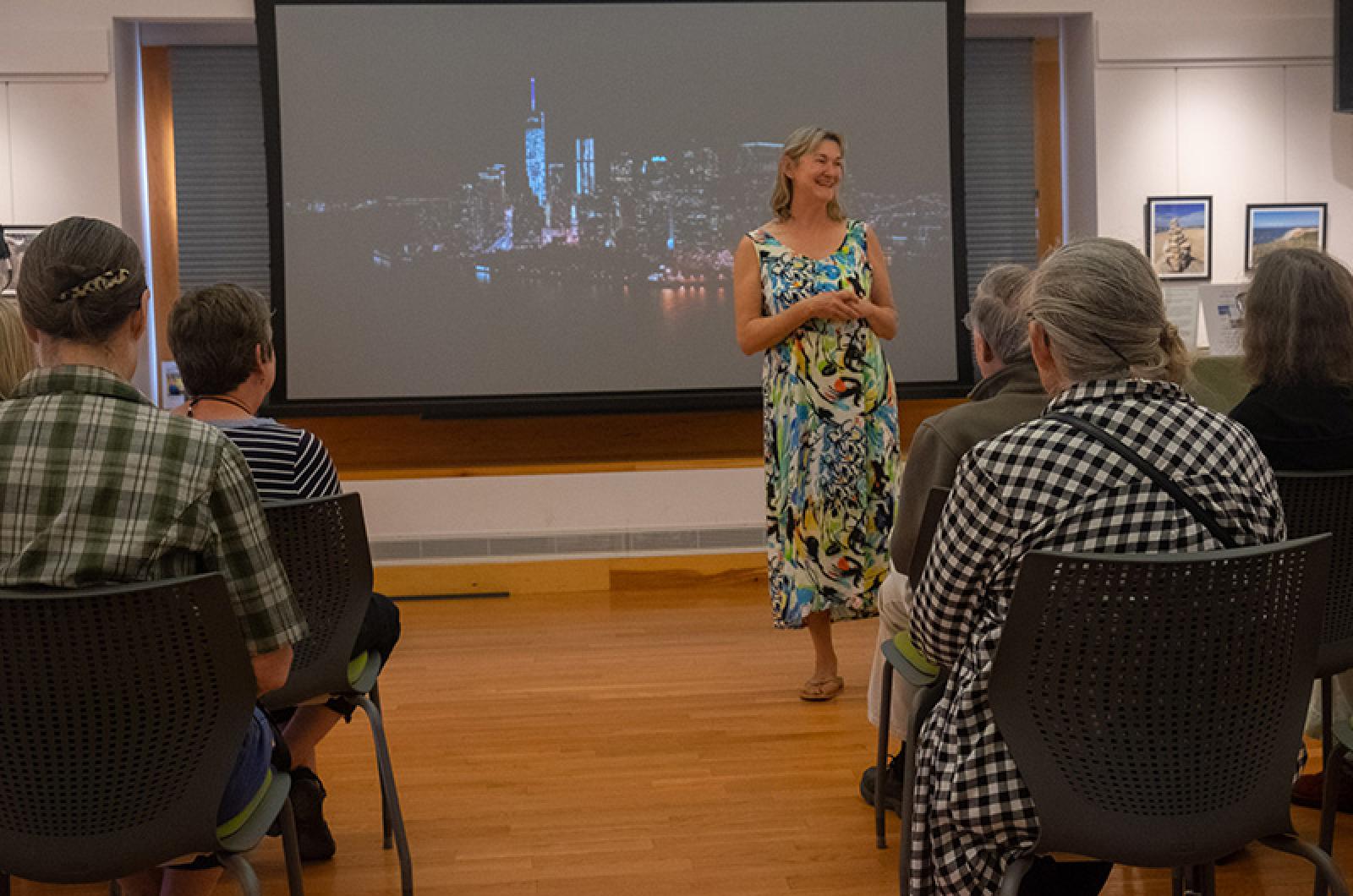When she’s not home on Martha’s Vineyard, Angela Andersen is crisscrossing the globe as an international journalist for television networks in Germany.
She’s covered subjects like Silicon Valley, nuclear proliferation, capital punishment, and most recently, the denials of human rights that persist more than 70 years after the Universal Declaration of Human Rights was proclaimed by the United Nations General Assembly in 1948.
“This documentary means a lot to me,” Ms. Andersen said before screening Inviolable: The Struggle for Human Rights for an audience of about two dozen people at the West Tisbury library Saturday afternoon.
Ms. Andersen will show the film again, followed by a question-and-answer period, at the Vineyard Haven library Oct. 8 at 7 p.m.

After that, the 89-minute documentary is off to San Francisco for the late-October United Nations Association Film Festival, which was founded to celebrate the 50th anniversary of the Universal Declaration of Human Rights.
“They chose my film to close the festival before the awards ceremony,” Ms. Andersen said Saturday.
A German-born West Tisbury resident with dual citizenship in both nations, Ms. Andersen directed Inviolable with on-screen partner Claus Kleber, a top German news anchorman with a Cronkite-like reputation for trustworthiness among his millions of nightly viewers.
About 100 crewmembers in more than half a dozen countries worked on the film, Ms. Andersen said. ZDF TV, one of two German television networks she said are structured much like the BBC, funded the entire project.
“The network buys the subject,” she said. “I don’t have to fundraise.”
Inviolable makes no pretence of objectivity, as the narrator — Kleber in the German original, an English-speaking male voice in the version shown here — acknowledges at the start.
In Hong Kong, Indonesia, Guatemala, Greece, Turkey and Kenya, the filmmakers spoke with rebels, artists, refugees and activists, some of whom have paid heavily for speaking out against a regime — or simply for existing in a country that doesn’t want them.
“We found amazing people” to interview, Ms. Andersen said, including the blind Chinese civil rights activist and self-taught lawyer Chen Guangcheng, who with his family suffered beatings and imprisonments over years of persecution and surveillance — “all for helping poor farmers in China,” she said.
Mr. Chen and his family eventually were permitted to leave China, and the film shows him free in New York city as the narrator says, “We need more people like him, for the battle is not yet won.”
Anne Mwinzi, a nurse who brings prenatal care and family planning to Masai nomads in Kenya, is another bright spot in the 90-minute film.
Other sequences are more hard hitting. Burned, scarred and living in a Bangladesh refugee camp, Rohingya women from Myanmar stare at the camera as they recall their violent rapes, which the film’s narration calls “a weapon of mass destruction intended to break the will of an entire people.”
In Guatemala, a village woman weeps, recalling the mining-company goons who killed her husband and paralyzed their neighbor.
Violations of the human rights declaration are not limited to the third world, developing countries and conflict zones. Examining the declaration’s Article 12, the right of privacy, leads Inviolable down the disturbing path of facial-recognition ID technology to a dystopian realm of omnipresent, high-tech surveillance that’s taking form in China and other advancing nations.
It’s all part of an “effort toward total control,” says Kenneth Roth of Human Rights Watch, who appears several times as the documentary moves from one violated article to another.
The filmmakers expose Turkey’s lack of press freedom in a visit to the country’s one remaining independent newspaper, where both police and private security guards are stationed at the entrance and the journalists inside cheerfully admit they could be arrested or killed at any time.
Inviolable’s world tour is an eye-opening 90 minutes of journalism. In addition to the Oct. 8 screening at the Vineyard Haven library, Ms. Andersen said a show at the Chappaquiddick Community Center may also be in the works before she takes the film to California for the U.N. festival.







Comments
Comment policy »